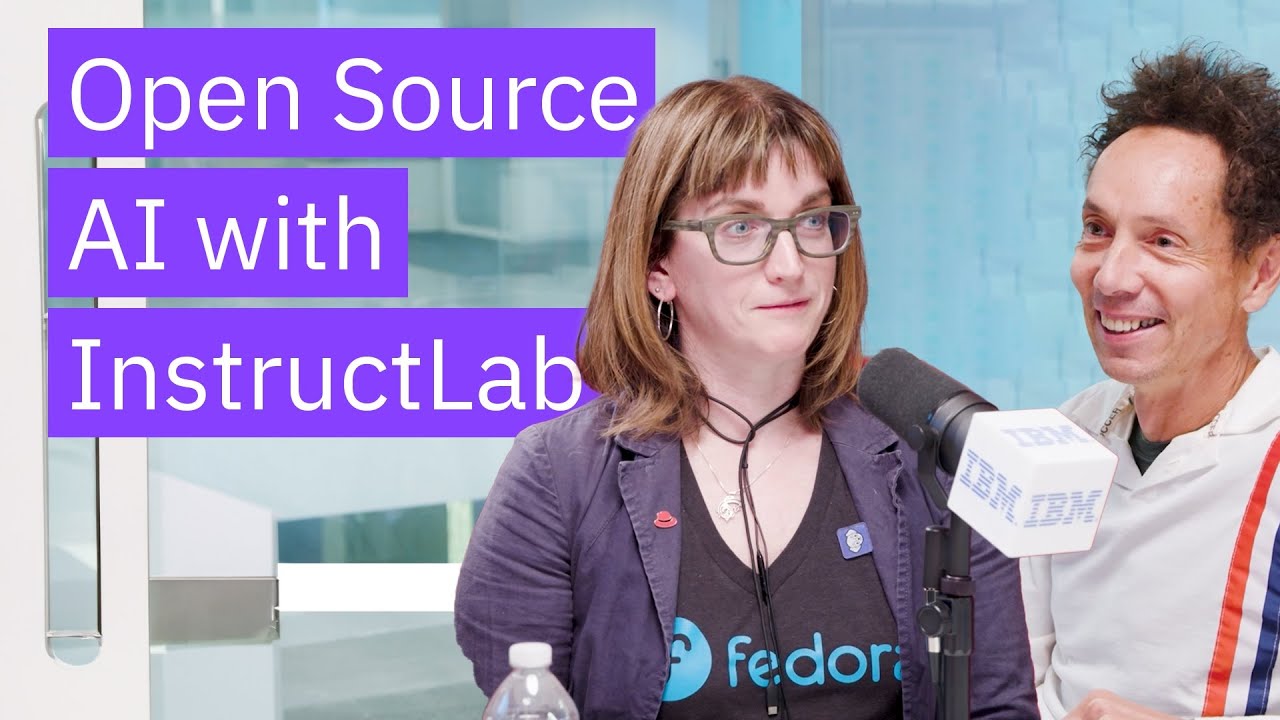In the video, Mo from Red Hat discusses her journey into open-source software and its potential to democratize AI through initiatives like Instruct Lab, which allows users to fine-tune AI models on standard hardware. By fostering community collaboration and enabling diverse contributions, Instruct Lab aims to make AI development more accessible and beneficial across various industries.
In the video, Mo, a representative from Red Hat, shares her journey into the world of open-source software and its potential to democratize artificial intelligence (AI). Growing up in New York, she was introduced to Linux through her brother’s need for a compiler, which sparked her interest in customizing software. This experience led her to appreciate the collaborative nature of open-source communities, where individuals can contribute and modify code, contrasting sharply with proprietary software that limits user control and innovation.
Mo explains the fundamental differences between open-source and proprietary software. Open-source software allows users to share, modify, and contribute to the code, fostering a sense of community and collaboration. In contrast, proprietary software is owned by companies, and users often relinquish their rights to any code they create while employed there. This lack of control can hinder innovation, as businesses may find themselves dependent on the decisions of a single company regarding software updates and features.
The discussion then shifts to Instruct Lab, a project that aims to make AI more accessible by allowing users to fine-tune existing AI models on standard hardware, such as laptops. Mo highlights the importance of this initiative, as it enables a broader range of contributors to participate in AI development, rather than relying solely on large corporations with extensive resources. By allowing users to modify and improve AI models, Instruct Lab seeks to create a more diverse and inclusive AI landscape.
Mo shares a compelling example of how Instruct Lab can be utilized in practical scenarios, such as a law firm using the model to analyze contracts or an insurance company training the model with historical claims data. This tailored approach allows businesses to leverage their proprietary information while ensuring that sensitive data remains secure. The ability to fine-tune models for specific industries or applications enhances efficiency and provides unique insights that generic models cannot offer.
Finally, Mo expresses her excitement about the future of Instruct Lab and its potential to foster a vibrant community of contributors. She envisions a platform where individuals from various fields can collaborate, share knowledge, and continuously improve AI models. By making AI development more accessible and community-driven, Instruct Lab aims to democratize AI, ensuring that it benefits a wider audience and encourages innovation across diverse sectors.
